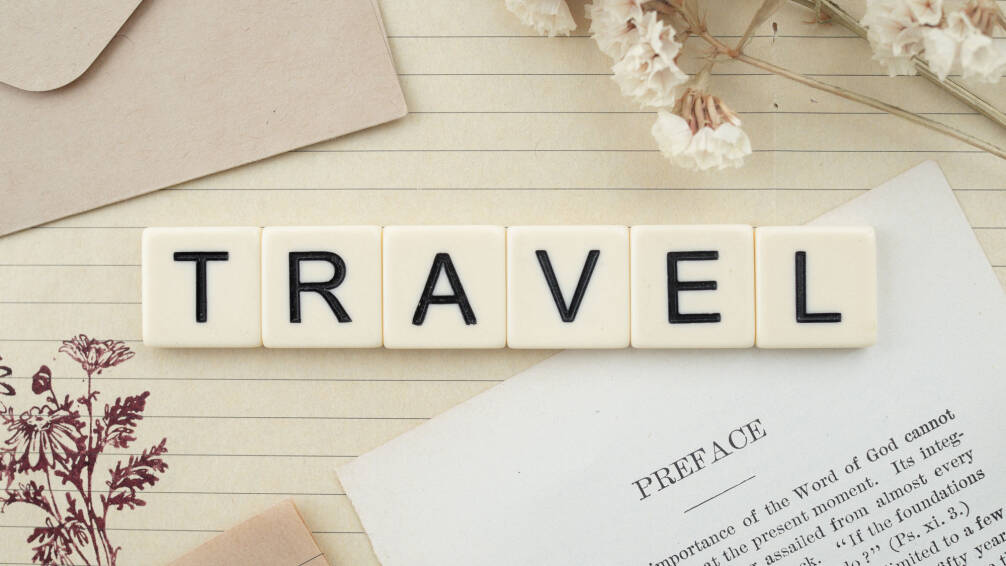sources
- W.T.O. (2020). COVID-19 tourism recovery technical assistance package
- The Hoteliers Action Plan for a Post Lockdown World, Revenue Hub
- Four ways hotels can adapt during the Coronavirus Crisis, HotelChamp
New business models
Staycations aren’t the only lifeline for the industry in the foreseeable future.The new norm of working from home also offers chances. For many, the dividing lines between work, private life and leisure, are being blurred and creating challenges. That’s why some players in the travel industry are introducing the concept: workation. The international hotel group citizenM recently launched two subscription models: one targeting businesses with employees who work remotely but occasionally need a space to meet for business, the other targeting digital nomads. The so-called corporate subscription company that gives access to various facilities of the hotels. New sorts of business models like these might be the way to survive for the industry.
Spicing up room service
Even when the vaccine is found and fully tested, it will take a while to roll out the medical plan to make sure everyone gets the vaccination, and for everyone to feel safe again. Social distancing will stay of our ‘new normal’ which means in-room dining might become more prominent and even be the preference for some. Consider spicing up your room service menus, extending your food choices and even review your serving hours. In the coming period where still a lot is uncertain, great incentives for potential customers could be free-cancellation service.
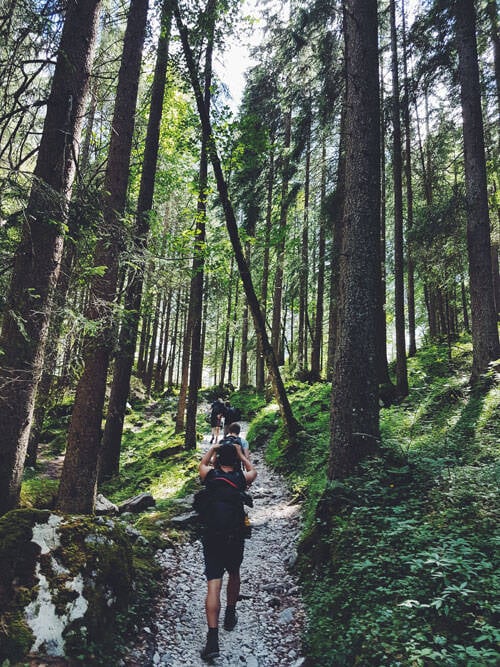
Promote facilities to locals
To further attract local guests hotels should consider putting extra effort into promoting their excellent facilities to locals. Whether it is an award winning restaurant, a beautiful nearby sight and especially outdoor activities. According to tech-marketing company Hotelchamp it is worthwhile using geo-targeting to highlight these facilities. Geo-targeted campaigns allow companies to personalise their content based on a website visitor’s location. Displaying more relevant content and putting emphasis on other revenue streams will help cover some of the drop in room revenue.


New business models
tourism
Hygiene is key
As big scale recovery plans usually take some time to put in place, one might be wondering what professionals in the industry can do right now, to start re-focusing on domestic guests. First and foremost it’s important to give guests a feeling of safety. Although traveling within their own borders seems to have a lower threshold than travelling abroad, people are still anxious that traveling could affect their health. The Atmosphere Research Group, a San Francisco-based travel market research firm, conducted a survey of 2,500 business and leisure travelers in the United States in July 2020. Over 80% said it was important that hotels exceed guidelines for cleaning guest rooms issued by the World Health Organization and Centers for Disease Control and Prevention. These guidelines include, among other measures, the frequent use of E.P.A.-approved disinfectants on “surfaces and objects touched by multiple people,” as well as practicing social distancing and wearing masks.
United Nations support recovery
In their briefing notes, UNWTO is urging efforts from governments and global banks to boost the recovery of the tourism sector, which must be maintained and upscaled. UNWTO itself launched the ‘COVID19 Tourism Recovery Technical Assistance Package’, to help governments on a macro level. The technical support offered by UNWTO is designed to help countries work towards the 2030 Agenda for Sustainable Development and the 17 Sustainable Development Goals (SDGs), as several of these goals directly relate to tourism. According to the organisation, to recover the tourist industry and make it more resilient, stakeholders on all levels should work together to adapt to a post-covid world.
China predicts trends
If we look at China, where the spreading COVID-19 started, and therefore a place that is ahead of developments of the virus, trends can be predicted. In an attempt to reanimate air traffic, many Chinese (domestic) airlines opted for price promotions. Several airlines even have all-you-can-fly deals in which consumers can fly unlimited for a fixed amount. The actions are successful. Reuters news agency reports that in June the number of domestic flights in China was at 80 percent of pre-corona occupation. So it seems that as soon as the risk of contamination has been sufficiently minimized, we will quickly get back on the plane for next to nothing.

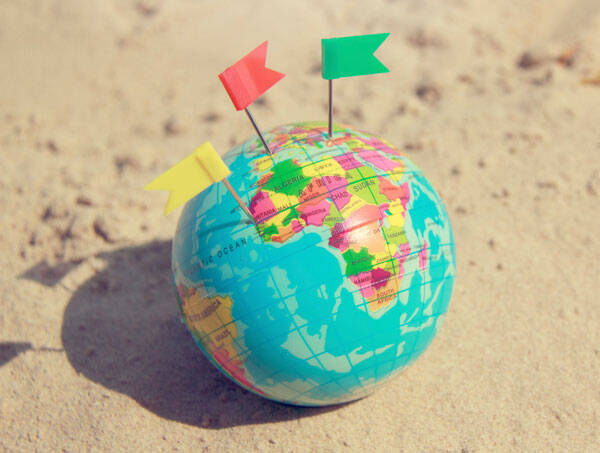
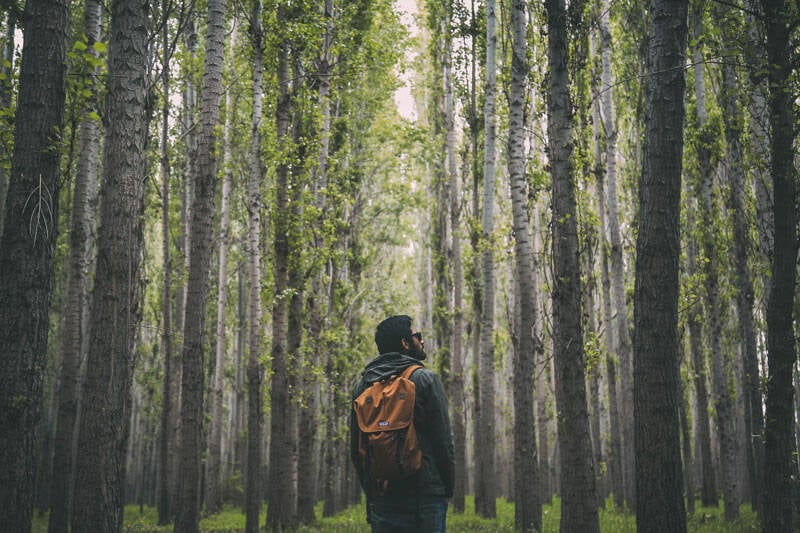
Some examples of incentives offered by different governments to promote domestic tourism:
In Italy, the Bonus Vacanze initiative offers families with incomes of up to EUR 40,000 (47,500 US dollars) contributions of up to EUR 500 (around 600 US dollars) to spend in domestic tourism accommodation.
Malaysia allocated 113 million dollars worth of travel discount vouchers as well as personal tax relief of up to 227 dollars for expenditure related to domestic tourism.
Costa Rica moved all holidays of 2020 and 2021 to Mondays for Costa Ricans to enjoy long weekends to travel domestically and to extend their stays.
During the beginning of summer 2020 France launched the campaign #CetÉtéJeVisiteLaFrance (‘This Summer, I visit France’) highlighting the diversity of destinations across the country.
Argentina announced the creation of an Observatory for Domestic Tourism to provide a better profile of Argentine tourists.
Thailand will subsidize 5 million nights of hotel accommodation at 40% of normal room rates for up to five nights.
As a reaction to the consequences of the COVID-19 virus, countries around the world are trying to boost domestic tourism and save parts of the industry, with some offering incentives to encourage people to explore their own states and provinces. Those incentives range from offering bonus holidays for workers to providing travel vouchers. A growing market of domestic tourism would represent opportunities for both developed and developing countries to recover from the social and economic impacts of the COVID-19 pandemic. For example the food and restaurant industry could be boosted by more people traveling, looking for good places to eat adding to the experience value of their trip.

changing face
Globally, the largest domestic tourism markets in terms of expenditure are the United States with nearly 1 trillion dollars, Germany with 249 billion dollars, Japan 201 billion dollars, the United Kingdom with 154 billion dollars and Mexico with 139 billion dollars.
Unlike other industries, the tourism industry is hard to define as there clearly isn't one product. The sector incorporates many industries, including hotels, lodging, B&B’s, transport, attractions, travel companies, and much more. Tourism represents 30% of the world’s exports of services and 1 in every 10 jobs worldwide. As one can imagine due to the restrictions on travelling, millions of livelihoods are at stake.
Domestic tourism will recover faster
In September the United Nations World Tourism Organization (UNWTO) released some of its tourism and COVID-19 briefing notes, showing data that in 2018, around 9 billion domestic tourism trips were made worldwide; six times the number of international tourist arrivals. The briefing note also shows that, in most destinations, domestic tourism generates higher revenues than international tourism. In the European Union, domestic tourism expenditure is 1.8 times higher than inbound tourism expenditure. According to the UNWTO domestic tourism is set to return faster than international travel.
Domestic travel saving the industry after COVID-19
the changing face
of tourism
Lisa Appels Wouter Noordijk
Tourism is one of the most dynamic and most job intensive sectors of recent times. Although all industries have been hit by the global pandemic, The tourism industry has been hit particularly hard. While restrictions on international travel are still strict in most countries, a lot of these limitations do not apply on travel within the country. The way we spend our holidays and free time, also shifts the ways we spend our budgets on food. For the tourism industry to survive, the solution seems to lie in focussing on a domestic target audience.

trendwatch
6 min
the changing face of tourism
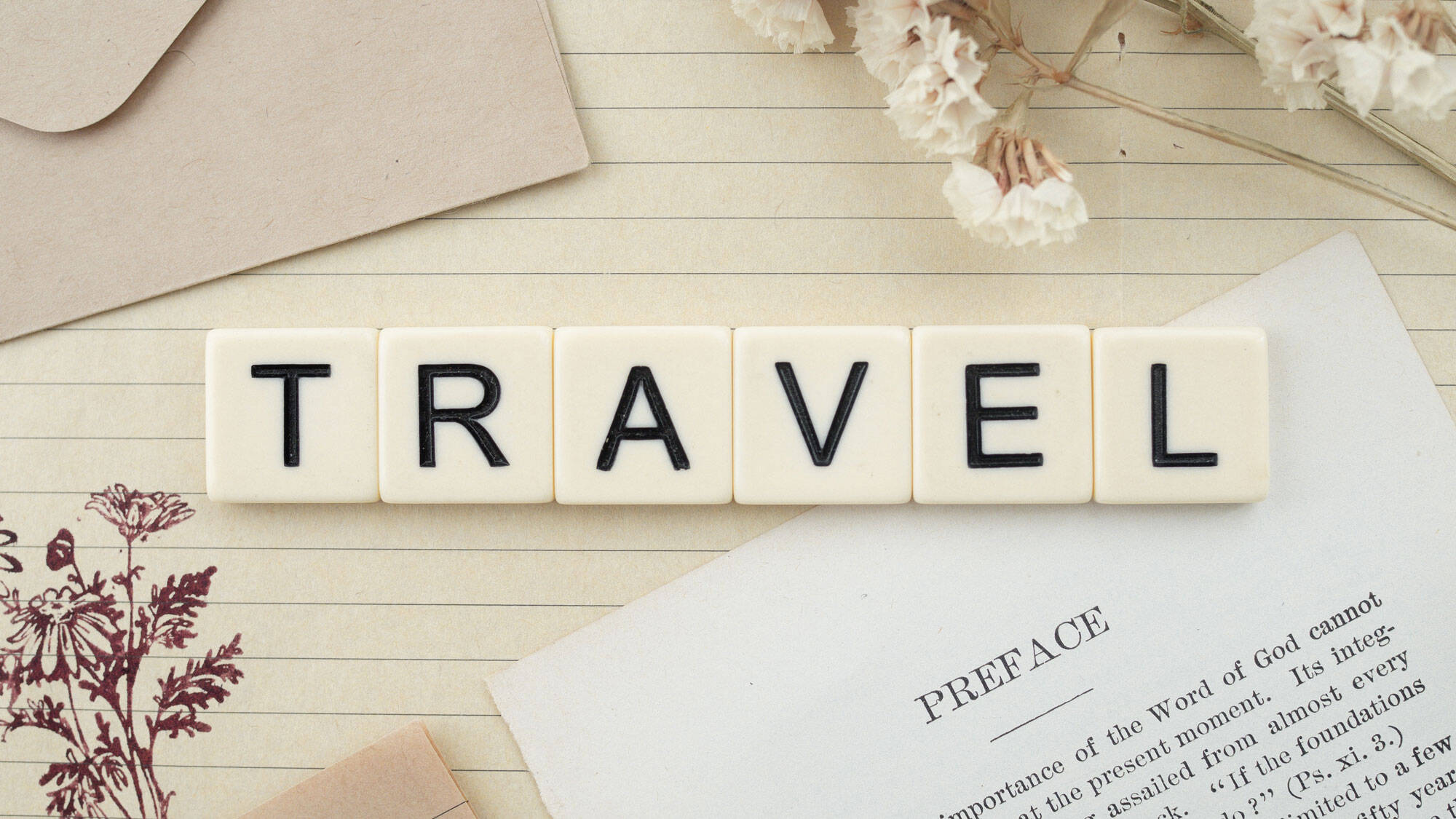
New business models
Staycations aren’t the only lifeline for the industry in the foreseeable future.The new norm of working from home also offers chances. For many, the dividing lines between work, private life and leisure, are being blurred and creating challenges. That’s why some players in the travel industry are introducing the concept: workation. The international hotel group citizenM recently launched two subscription models: one targeting businesses with employees who work remotely but occasionally need a space to meet for business, the other targeting digital nomads. The so-called corporate subscription company that gives access to various facilities of the hotels. New sorts of business models like these might be the way to survive for the industry.
Spicing up room service
Even when the vaccine is found and fully tested, it will take a while to roll out the medical plan to make sure everyone gets the vaccination, and for everyone to feel safe again. Social distancing will stay of our ‘new normal’ which means in-room dining might become more prominent and even be the preference for some. Consider spicing up your room service menus, extending your food choices and even review your serving hours. In the coming period where still a lot is uncertain, great incentives for potential customers could be free-cancellation service.
Promote facilities to locals
To further attract local guests hotels should consider putting extra effort into promoting their excellent facilities to locals. Whether it is an award winning restaurant, a beautiful nearby sight and especially outdoor activities. According to tech-marketing company Hotelchamp it is worthwhile using geo-targeting to highlight these facilities. Geo-targeted campaigns allow companies to personalise their content based on a website visitor’s location. Displaying more relevant content and putting emphasis on other revenue streams will help cover some of the drop in room revenue.

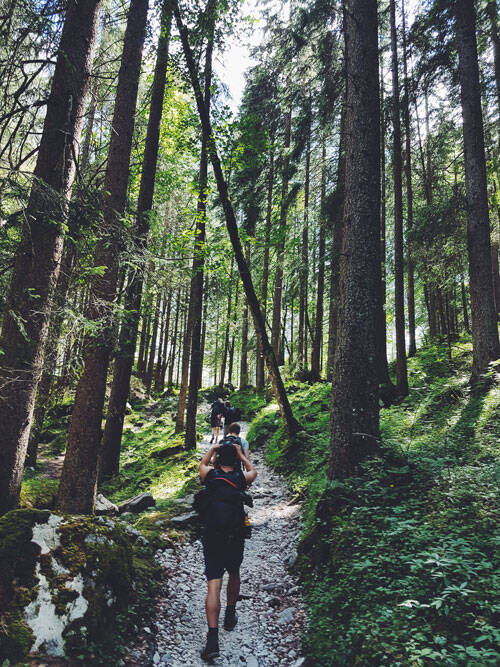
Hygiene is key
As big scale recovery plans usually take some time to put in place, one might be wondering what professionals in the industry can do right now, to start re-focusing on domestic guests. First and foremost it’s important to give guests a feeling of safety. Although traveling within their own borders seems to have a lower threshold than travelling abroad, people are still anxious that traveling could affect their health. The Atmosphere Research Group, a San Francisco-based travel market research firm, conducted a survey of 2,500 business and leisure travelers in the United States in July 2020. Over 80% said it was important that hotels exceed guidelines for cleaning guest rooms issued by the World Health Organization and Centers for Disease Control and Prevention. These guidelines include, among other measures, the frequent use of E.P.A.-approved disinfectants on “surfaces and objects touched by multiple people,” as well as practicing social distancing and wearing masks.
United Nations support recovery
In their briefing notes, UNWTO is urging efforts from governments and global banks to boost the recovery of the tourism sector, which must be maintained and upscaled. UNWTO itself launched the ‘COVID19 Tourism Recovery Technical Assistance Package’, to help governments on a macro level. The technical support offered by UNWTO is designed to help countries work towards the 2030 Agenda for Sustainable Development and the 17 Sustainable Development Goals (SDGs), as several of these goals directly relate to tourism. According to the organisation, to recover the tourist industry and make it more resilient, stakeholders on all levels should work together to adapt to a post-covid world.
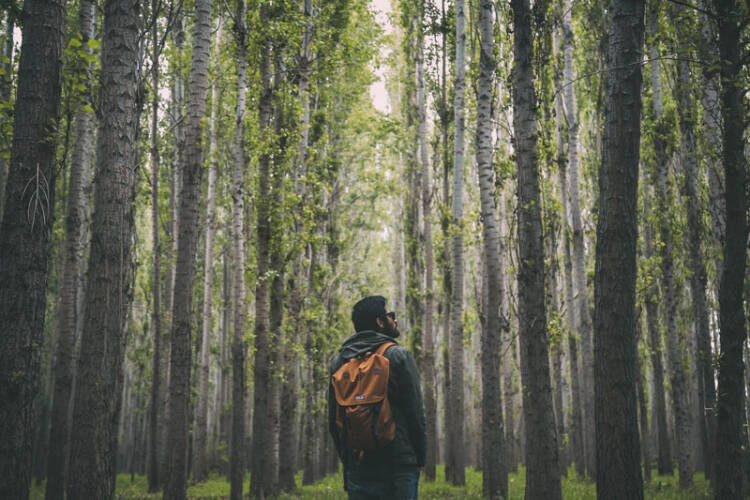
China predicts trends
If we look at China, where the spreading COVID-19 started, and therefore a place that is ahead of developments of the virus, trends can be predicted. In an attempt to reanimate air traffic, many Chinese (domestic) airlines opted for price promotions. Several airlines even have all-you-can-fly deals in which consumers can fly unlimited for a fixed amount. The actions are successful. Reuters news agency reports that in June the number of domestic flights in China was at 80 percent of pre-corona occupation. So it seems that as soon as the risk of contamination has been sufficiently minimized, we will quickly get back on the plane for next to nothing.

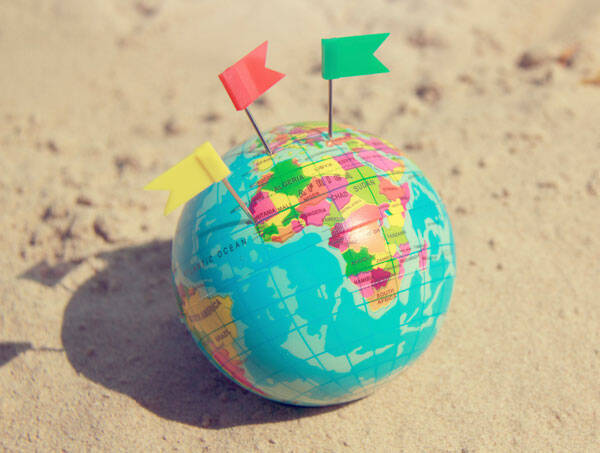
Some examples of incentives offered by different governments to promote domestic tourism:
In Italy, the Bonus Vacanze initiative offers families with incomes of up to EUR 40,000 (47,500 US dollars) contributions of up to EUR 500 (around 600 US dollars) to spend in domestic tourism accommodation.
Malaysia allocated 113 million dollars worth of travel discount vouchers as well as personal tax relief of up to 227 dollars for expenditure related to domestic tourism.
Costa Rica moved all holidays of 2020 and 2021 to Mondays for Costa Ricans to enjoy long weekends to travel domestically and to extend their stays.
During the beginning of summer 2020 France launched the campaign #CetÉtéJeVisiteLaFrance (‘This Summer, I visit France’) highlighting the diversity of destinations across the country.
Argentina announced the creation of an Observatory for Domestic Tourism to provide a better profile of Argentine tourists.
Thailand will subsidize 5 million nights of hotel accommodation at 40% of normal room rates for up to five nights.
As a reaction to the consequences of the COVID-19 virus, countries around the world are trying to boost domestic tourism and save parts of the industry, with some offering incentives to encourage people to explore their own states and provinces. Those incentives range from offering bonus holidays for workers to providing travel vouchers. A growing market of domestic tourism would represent opportunities for both developed and developing countries to recover from the social and economic impacts of the COVID-19 pandemic. For example the food and restaurant industry could be boosted by more people traveling, looking for good places to eat adding to the experience value of their trip.

Globally, the largest domestic tourism markets in terms of expenditure are the United States with nearly 1 trillion dollars, Germany with 249 billion dollars, Japan 201 billion dollars, the United Kingdom with 154 billion dollars and Mexico with 139 billion dollars.
Unlike other industries, the tourism industry is hard to define as there clearly isn't one product. The sector incorporates many industries, including hotels, lodging, B&B’s, transport, attractions, travel companies, and much more. Tourism represents 30% of the world’s exports of services and 1 in every 10 jobs worldwide. As one can imagine due to the restrictions on travelling, millions of livelihoods are at stake.
Domestic tourism will recover faster
In September the United Nations World Tourism Organization (UNWTO) released some of its tourism and COVID-19 briefing notes, showing data that in 2018, around 9 billion domestic tourism trips were made worldwide; six times the number of international tourist arrivals. The briefing note also shows that, in most destinations, domestic tourism generates higher revenues than international tourism. In the European Union, domestic tourism expenditure is 1.8 times higher than inbound tourism expenditure. According to the UNWTO domestic tourism is set to return faster than international travel.
sources
- W.T.O. (2020). COVID-19 tourism recovery technical assistance package
- The Hoteliers Action Plan for a Post Lockdown World, Revenue Hub
- Four ways hotels can adapt during the Coronavirus Crisis, HotelChamp
Domestic travel saving the industry after COVID-19

of tourism
the changing face
Lisa Appels Wouter Noordijk
Tourism is one of the most dynamic and most job intensive sectors of recent times. Although all industries have been hit by the global pandemic, The tourism industry has been hit particularly hard. While restrictions on international travel are still strict in most countries, a lot of these limitations do not apply on travel within the country. The way we spend our holidays and free time, also shifts the ways we spend our budgets on food. For the tourism industry to survive, the solution seems to lie in focussing on a domestic target audience.
6 min
